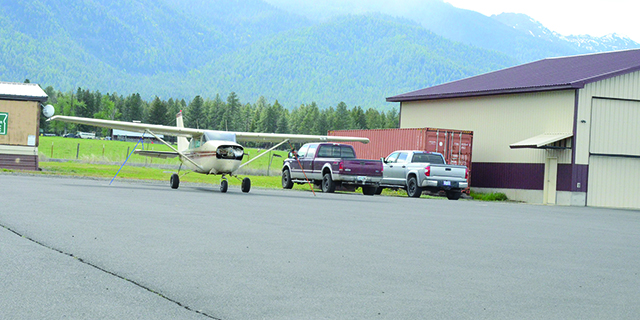Joseph City Council: forum for Eastern Oregon Economic Development grant possibility
Published 6:30 am Wednesday, April 24, 2019
A small item on the Joseph City Council monthly meeting agenda, the relocation of the Wallowa County Farmers Market provided the most discussion. The council met at the Joseph Community Center on Thursday, April 4.
During committee reports, Mayor Teresa Sajonia announced the city would receive $790.21 as its quarterly check from the Oregon Liquor Control Commission as the city’s share of marijuana sales revenue. The city voted to legalize recreational marijuana dispensaries in the November, 2018 election. Although the city does not yet have a dispensary, it still gets shared distribution of revenue generated by the state’s 17% sales tax on marijuana products.
Later, during the first tier of citizen comment, Don Bronson asked if the marijuana revenue funds were earmarked for particular projects and Sajonia replied that the budget committee would decide the revenue’s consignment.
The city spent some time concerning the relocation of the farmers market, a long-time bone of contention for some city council members. The city read a letter of complaint from a pair of Mill Street property owners who accused the market or its customers of harassing their dog, making noise, parking on their property, etc.
The council questioned both market representatives and the complaining party. Despite the fact that the couple presented no hard evidence for their claims, the council voted 5-2 to change the market location from its current Joseph Avenue location to a location to be determined in the future, possibly the city’s public parking lot.
The city also held a public forum for Eastern Oregon Economic Development for a grant possibility for an industrial zone. Jerry Johnson of Johnson Economics led the forum. He said he was making the rounds through eastern Oregon cities for an economic opportunities analysis paid for by the Department of Land Conservation and Development.
The purpose is to ensure that the land use system is supportive of land use economic development objectives and goals. The city set up a committee, chaired by city recorder, Belinda Buswell, to work with Johnson. The committee is composed of about a dozen citizens and council members.
Johnson spoke of the volatile nature of employment and economy in rural towns. He noted Joseph’s scenery as a strong point and noted that although unemployment was high compared to urban areas, it was relatively stable for a small eastern Oregon town. He and several citizens talked about the need for finding 12 month employment for employees, and much discussion settled around the lack of local housing for prospective workers.
He noted the importance of tourism and recreation and the possibility of some business or industry related to fishing, hiking or other outdoor pursuits. Value-added agriculture such as breweries, distilling or fruit and vegetable products.
An audience member said that the city had little commercial or industrial rental space and limited retail space as well. Johnson agreed. He said that the problem was typical of small communities and that some cities answered the call by building speculative industrial space, which can be broken up and leased to different businesses at relatively low cost.
“Not everyone can afford to build a brand new building themselves, nor does it make any sense for them if they’re a start-up business,” he said.
Some discussion ensued about the city’s industrial park located near Russell Lane, which is relatively open to any kind of industry, but presently lacks sewer and water access.
Sajonia said that sewer and water extend partway down the lane, but the city is working on grants to extend those services down into the industrial area.
Audience member Lisa Dawson noted that many companies allow their workers to work from remote locations. She suggested with the beauty of the county being desirable, the city could work on strategies to attract remote workers to the area. Johnson noted that the percentage of self-employed workers in the county is twice that of the state’s average.
Other options were discussed, such as getting the public involved in advocating for employment in natural resources utilization, such as logging and millwork. Council member Tanya Collier suggested more daycare might be helpful as she knew people who couldn’t work full time because of a daycare lack. She added that Joseph Charter School is starting an aviation program that could generate employment. Councilor Marty Hamilton mentioned the idea of a recording studio or a zipline for outdoor recreation.
Sajonia wrapped up the segment by asking Johnson if private party or city owned industrial parks had a greater chance of success. Johnson replied that private industrial parks made more money but were harder to get funded. He said private industry generally responds to small towns such as Joseph with the notion that it won’t have high enough demand and the cost of infrastructure, although he noted cities will often foot the infrastructure bills. He added that it’s tough for cities to know how to divide space in an industrial park and also taking on landlord duties.
Citizens with questions or ideas for Johnson or the committee can call Joseph City Hall at 541-432-3832 and ask for Belinda Buswell, or email Buswell at cojbbuswell@frontier.com.
The council also awarded a $2,082.50 hotel/motel tax grant to Chief Joseph Days Rodeo after rodeo director, Diane Witherrite, asked for the amount to purchase 25 flags promoting the rodeo to fly from city poles.





